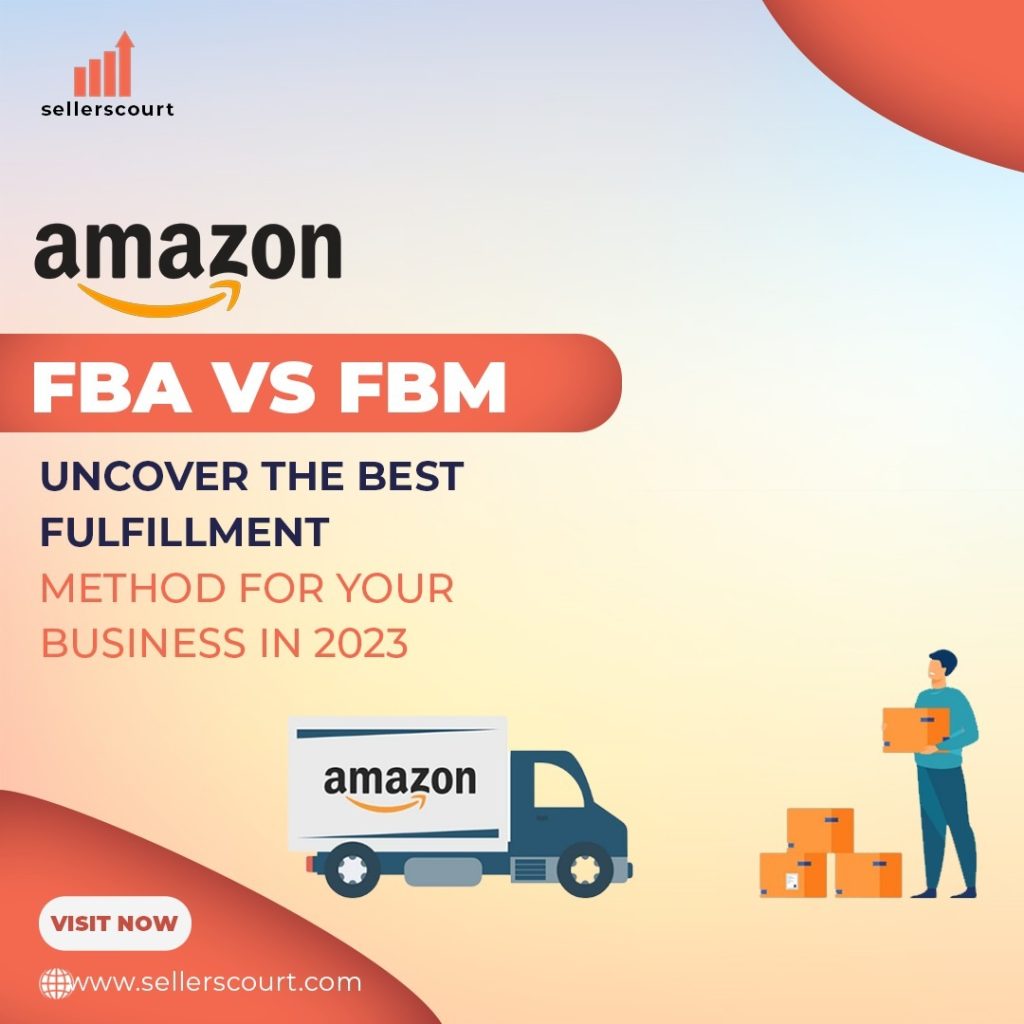
Introduction:
Choosing the right fulfillment method is a critical decision for Amazon sellers. The two main options are Fulfillment by Amazon (FBA) and Fulfillment by Merchant (FBM). Each method has its advantages and drawbacks, and the best choice for your business depends on your unique circumstances and goals. In this blog post, we at Sellerscourt, an Amazon agency with 45 years of combined experience, will compare Amazon FBA vs. FBM to help you determine which fulfillment method is right for your business in 2023.
Understanding Amazon FBA and FBM
Fulfillment by Amazon (FBA) is a service where Amazon handles the storage, packing, shipping, and customer service for your products. You send your inventory to Amazon’s fulfillment centers, and they take care of the rest.
Fulfillment by Merchant (FBM) is when you, as the seller, handle the storage, packing, shipping, and customer service for your products. You are responsible for managing your inventory and fulfilling orders directly to customers.
Pros and Cons of Amazon FBA
Pros:
- Prime eligibility: FBA products are eligible for Amazon Prime, increasing your products’ visibility and appeal to Prime members.
- Simplified shipping: Amazon handles shipping for you, including returns and customer service, allowing you to focus on other aspects of your business.
- International shipping: FBA simplifies the process of shipping products internationally, expanding your global reach.
- Multi-channel fulfillment: Amazon can fulfill orders from other sales channels, centralizing your inventory management and fulfillment processes.
Cons:
- Fees: Amazon charges fees for storage, fulfillment, and other services, which can impact your profit margins.
- Inventory restrictions: Amazon may impose inventory restrictions, limiting the number of units you can store in their fulfillment centers.
- Less control: You have less control over the packaging, shipping, and handling of your products.
Pros and Cons of Amazon FBM
Pros:
- Lower fees: FBM sellers typically pay lower fees, as they do not incur storage and fulfillment fees from Amazon.
- More control: You have more control over the packaging, shipping, and handling of your products.
- No inventory restrictions: There are no inventory restrictions imposed by Amazon, giving you more flexibility in managing your stock levels.
Cons:
- Shipping and customer service responsibilities: You are responsible for handling shipping, returns, and customer service, which can be time-consuming and complex.
- No Prime eligibility: FBM products are not eligible for Amazon Prime, potentially limiting your products’ visibility and appeal to Prime members.
- Limited international shipping: Handling international shipping and logistics can be more challenging for FBM sellers.
Factors to Consider When Choosing Between Amazon FBA and FBM
When deciding between Amazon FBA vs. FBM, consider the following factors:
- Product type and size
- Sales volume
- Profit margins
- Storage capacity
- International shipping
- Time and resources
Hybrid Fulfillment: Combining Amazon FBA and FBM
Some sellers opt for a hybrid fulfillment strategy, using both FBA and FBM to optimize their operations. This approach allows you to take advantage of the benefits of each fulfillment method while mitigating their drawbacks.
Consulting an Amazon Agency
Determining the best fulfillment method for your Amazon business can be a complex decision with significant implications for your operations and profitability. Consulting with an experienced Amazon agency, like Sellerscourt, can help you make an informed decision based on your unique circumstances and goals.
Conclusion
Choosing between Amazon FBA and FBM is a critical decision that can impact your e-commerce business’s success. By evaluating the pros and cons of each fulfillment method and considering factors such as product type, sales volume, profit margins, and available resources, you can make an informed choice that aligns with your business objectives. A hybrid fulfillment strategy or consulting with an Amazon agency like Sellerscourt can also help you optimize your operations and achieve better results.
With 45 years of combined experience and offices in London and New York, Sellerscourt specializes in helping Amazon sellers navigate the complexities of the e-commerce landscape. Contact us today to learn more about our services and how we can support your Amazon business.
